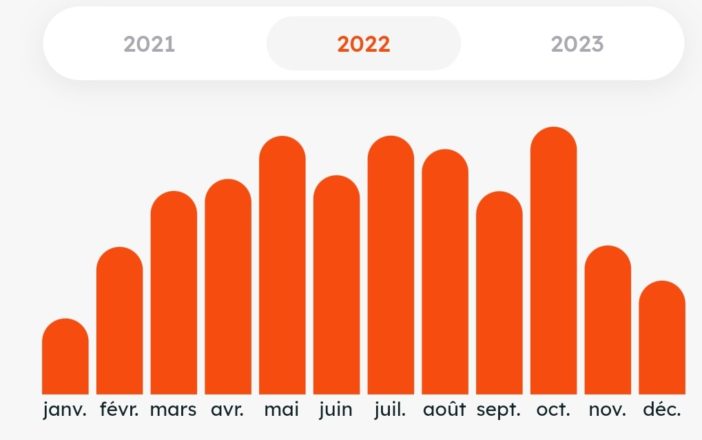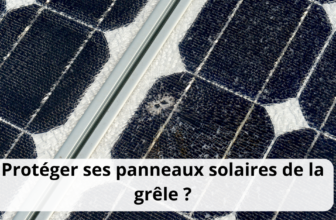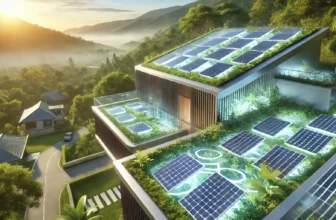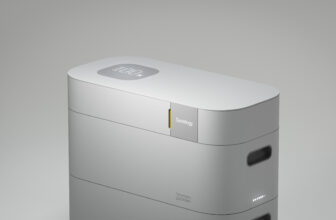This is a misconception that many people have about photovoltaics! Sunethic, which we discovered for its solar station, also has the mission of educating the general public about solar. In this context, the company has just published a text that I found very interesting on the preconceived ideas surrounding photovoltaics, which I share with you below.
While this winter, nearly 2 out of 3 French people are in an energy emergency situation, according to an Opinion Way 2023 study, nearly 60% of French people are considering opting for solar self-consumption in order to reduce their bill. However, even today, many preconceived ideas persist and prevent some consumers from taking the plunge, especially during the winter season. To dispel these concerns, Sunethic, a pioneer in French solar stations that plug into a socket, is committed to demystifying persistent preconceived ideas and offering concrete solutions to encourage the French to switch serenely to photovoltaics.
Misconception #1: Solar panels do not produce electricity in winter.
For 62% of French people, solar panels do not work in winter because of the shorter days and less sun during this period.
Opinion Way, 2022
Let us remember that the operation of photovoltaic panels is not limited to the direct presence of the sun. In reality, light remains the key factor in energy production. Despite the reduction in the duration of sunshine during the four winter months, they still contribute to around 20% of annual production.
Better: it happens that some days are more productive than some summer days. Indeed, in summer the panels can heat up, which reduces their productivity a little. While a beautiful day in February for example can have an exceptional production, the light being there, and the cooling of the panels happening naturally.
Sunethic solar stations integrate innovative features to optimize their performance in winter. The Voltec Solar cells, reactive to low sunlight (PERC), and the APsystems DS3-L micro-inverter, starting at a lower panel voltage (28V compared to 34V usually), allow production even in low light. In addition, the support offers an adjustable tilt of up to 63°, which allows to maximize daily production up to 50%, given the low azimuth angle of the sun during this season.
Misconception #2: solar panels are only profitable in summer.
53% of French people believe that solar panels are only profitable in summer.
Opinion Way, 2022
It is true that the profitability of solar panels fluctuates with the seasons and is particularly favorable from March to October thanks to longer days and better weather. However, it is important to measure the overall profitability of these solutions on an annual, or even multi-year, basis for a complete assessment of the savings made.

The startup emphasizes, however, that adding solar panels remains very interesting in winter, especially for those equipped with electric heating, such as a heat pump or reversible air conditioning. It specifies that there are also remedies for the drop in production. The summer energy surplus can effectively finance winter consumption through resale to EDF or the use of virtual storage batteries. Adding solar panels becomes an even more interesting solution.
Misconception #3: Solar panels are not suitable for the French climate.
42% of French people think that solar panels are not suitable for the French climate.
Opinion Way, 2022
This popular idea suggests that the country lacks sunshine, especially during the winter months, when demand for electricity is highest. This perception once again does not reflect reality. Solar panels are now proving to be an economically advantageous solution for all French people. The startup claims that its kits are particularly profitable in all regions of France, with a return on investment in less than 7 years in the north and 5 years in the south.
Let's also remember that other countries are much better equipped than France in solar energy, and have been for a very long time, such as Germany or Belgium for example. Countries that are even further north and have even less sunshine.
Sunethic's practical advice
To maximize the use and efficiency of solar energy during the winter period, here are some practical tips:
- Planning the use of household appliances: It is recommended that users plan the use of their household appliances, such as the washing machine and dishwasher, during sunny hours, generally between 10am and 2pm. This strategy allows you to take full advantage of solar production, which is particularly beneficial during shorter days. For this, you can use connected sockets. Or set up automatic scenarios if you have a home automation system, especially since we had seen that the Sunethic station was perfectly compatible with Jeedom for example.
- Configuration of solar panels: it is recommended to adjust the inclination of the panels to 60° in order to capture the lower brightness characteristic of this time of year. This configuration helps to maximize the efficiency of solar energy collection.
- Using tools to adjust solar panels: User-friendly tools are available, such as free applications like ZENITRACK, as well as indications on the adjustable tilt bracket. These tools facilitate the adjustment of the panels according to the seasons, thus allowing optimal adaptation to the angle of the sun.
- Maintenance and frost resistance: It should be noted that all solar panels are designed to withstand frost and negative temperatures. No special precautions are required, except to ensure that the connections and cables are correctly connected and waterproof.







Please remain courteous: a hello and a thank you cost nothing! We're here to exchange ideas in a constructive way. Trolls will be deleted.